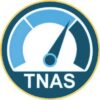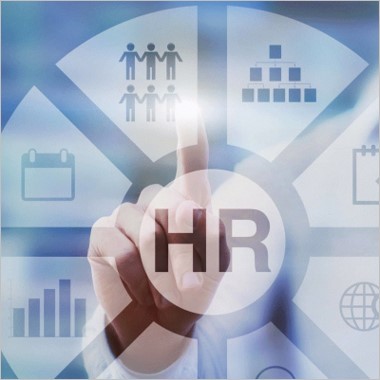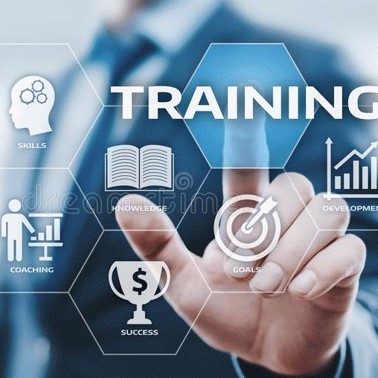Human Resource Management (HRM) is the organisational function that is primarily responsible for recruiting, managing and providing direction for all the people who work in the organisation. It focuses on issues relating to people such as staffing, organisational development, compensation and benefits administration, performance evaluation, safety and welfare, training, employee discipline, labour relations, and employee motivation, among others. Some HRM functions are delegated to line managers.
A key measure on the efficiency of the HR Department of an organisation is the performance of each individual employee. Productive and effective employees that contribute to the overall efforts of the organisation to achieve its corporate goals and objectives indicate good human resource management.
Following are some of the typical functions of the Human Resource Department:
Staffing – The need to hire a new employee is usually initiated by a requesting department or a vacancy created by a separated employee. The role of HR Management is to screen applicants based on the predefined job descriptions and job requirements, and schedule those who have the required skills and the required qualifications, for interview.
It is the HR Department’s responsibility to attract qualified applicants through job postings in various media, and some other creative means. Although the manager of the requesting department usually has the final say in the selection of candidates, HRM decides on whose applications deserve to be endorsed for further processing.
HRM also plays a major role in planning for reorganisations where new positions may be created, or existing ones changed or removed.
- Performance Evaluation – Another function of HRM is to motivate employees by rewarding commendable performance. The department is tasked to put in place a formal system for this purpose through periodic reviews and appraisals. Because the section or department heads are in constant contact with their staff and are in the best position to measure their contributions to the departmental and corporate goals, they normally do the evaluation, sometimes in the presence of the HR manager. Formal job evaluations also serve the following purposes:
- To guide personnel movements and actions such as promotions, lateral transfers, firing, and suspensions
- To provide feedback specifically on areas where the employees are weak and need to improve on; and for a job well done, to let the employees know that their efforts are highly appreciated
- To identify training courses that may be necessary to help the employees perform their duties better
- To reward deserving employees with promotions, bonuses, and other forms of incentives
- To provide the Human Resource Department with data that will be useful in future job planning sessions
- Compensation and Benefits Administration – The ideal scenario is an environment where employees are happy with what they receive in terms of salaries, wages and benefits; and employers feel that they get their money’s worth in terms of employee productivity. It is the responsibility of HR to make sure that the compensation paid to each employee is ethical, legal, motivating, fair, and satisfactory.
- Training and Development– The periodic performance appraisals provide the proper venue for training needs assessment. Aside from providing the employees with the right training courses to address their current weaknesses, the Human Resource Department must also equip them with the proper tools for possible growth opportunities in the future.
Because organisations evolve continuously to adapt to the times, and the ever-changing business environment, HR must make sure that the employees also obtain the necessary skills and competencies to keep up with the changes.
Likewise, training and development may be used for the following purposes:
- To orient employees on company policies and procedures
- To educate employees on safety measures to prevent accidents
- To develop necessary skills for the job
- To provide professional or technical education
- To provide supervisory or management seminars for those being eyed for promotions
Training and development benefits not only the employees. The employer also has a lot to gain from having well-trained people. For one, work productivity and efficiency will improve because the employees will be more motivated to do well in their respective jobs. This will redound to significant savings because there will be less spoilage on materials and supplies, and fewer accidents are likely to occur. This is also a way for management to manifest its concern for the professional as well as the personal development of the employees.
Labour Relations – Labour unions have been in existence since the American Revolution and are organized to address issues and concerns related to employment. Most employees who join do so in order to have better pay and to achieve better working conditions. Higher wages, more work leave days, and better medical coverage are some of the benefits that organized labour unions have obtained for their members.
However, the methods that some labour organisations employ to achieve their goals sometimes result to conflicts with the management. In most companies, it is the responsibility of the HR manager to mediate and resolve collective bargaining issues, and come up with a contract that will contain all the agreements made during the negotiations. Labour unions sometimes resort to strikes and lockouts if management does not give satisfactory offers. On the other hand, management can declare a lockout if no peaceful resolution is in sight.
Health and Safety– The employers must ensure that their workers are made to perform their jobs under safe and healthy working conditions. Taking the proper measures to eliminate or minimize work-related accidents that cause injuries is management’s responsibility. One way to address this is to continuously conduct health and safety training for the workers. After all, accidents and injuries affect employee productivity and performance that lead to higher operating losses.
In order to be effective in its various roles in the organisation, the HR Department must keep in step with the latest industry trends as far as compensation and benefits administration; staffing; performance evaluation; training needs assessment; safety and health; and labour relations are concerned. Constant research and learning are necessary. As HR is vital to the success of all the other departments in achieving their respective departmental objectives, it must be able to respond to the challenge of providing them with the support they need.



